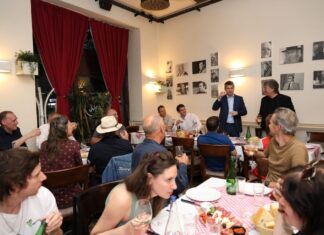When asked what is the enlightenment, Kant answered “Enlightened is man’s ascension from his self-imposed immaturity”. When reviewing the study of digital diplomacy, 2019 is the year of maturity. In 2015, scholars mainly asked who? Who manages the digital accounts of MFAs/embassies and multi-lateral missions? This was an important question. If digital diplomacy managers were former journalists, then perhaps diplomats viewed digital tools as new means for framing government communication. If, on the other hand, digital accounts were managed by social media wizards, then perhaps MFAs focused their efforts on attracting digital publics. An important activity given that without the public, one cannot practice diplomacy. Lastly, if digital accounts were managed by diplomats, then perhaps MFAs viewed Facebook and Twitter as foreign policy tools. Answers, we soon discovered, were diverse. While some MFAs hired former journalists, others hired social media experts while still others trained veteran diplomats in the new art of online communications.
These varied answers were not surprising as in 2015 MFAs were still migrating online and adapting to the digital age. There was therefore a substantial digital gap between MFAs. While some were establishing social media empires, others focused on training consular staff while still others were beginning to experiment with new digital frontiers such as virtual worlds and virtual embassies. Early adopters were leading the trend among MFAs while late bloomers were attempting to keep up with the new pace of diplomacy.
In 2017, diplomatic scholars begun to ask what? What do MFAs publish online? A list of press releases, or images from bi-lateral meetings or even Selfie? Then we asked do MFAs author their own videos and create their own images? Or do they merely stand on the shoulders of stock image giants? We also asked what is the level of sophistication of MFA content? Is content tailored to different digital audiences? Do MFAs use each digital platforms differently, or is the same content duplicated across vast social media empires?
Here again, the results were contradictory. Early studies suggested that MFAs duplicate content across digital platforms; that they fail to tailor content to their audiences’ interest or worldviews and that they rarely engage, or converse with the digital publics they amass. Twitter was but a new and more powerful radio. A tool for the mass dissemination of information. Then scholars found a major shift in the use of digital platforms. Some MFAs and embassies were using platforms to engage their diaspora. Israeli embassies begun to tailor their online content to local languages, cultures and histories while Indian and Polish diplomats were devolving unique smartphone applications.
2019 may be remembered as the year in which the study of digital diplomacy came of age. After asking who and what, scholars began to ask why? Why have MFAs, Embassies and diplomats so eagerly adopted digital platforms? Why have they migrated to Second Life and Twitter and Facebook and Instagram?
Why, is the most sophisticated question of all. Studies published this year suggest that diplomats have embraced the digital age in an attempt to shape how domestic and foreign publics understand the world around them. An important function given that the today’s world is incompressible, a violent mix of global, regional and national interests. Second, MFAs have adopted digital tools to meet the demands of digital publics. The digital society is one that exists in real-time. Its members no longer wait for the 8 o’clock newscast or tomorrow’s front page. They expect to learn about events shaping the world as they unfold. Therefore, diplomats have embraced the digital practice of real-time diplomacy. Third, diplomats have embraced digital practice to protect their national borders from foreign interference, be it by other states, hate groups or terror organizations. Finally, diplomats have embraced digital platforms in order to practice more transparent diplomacy; to invite digital publics into the UN deliberation rooms and the occasional smoked salmon dinners.
The challenge for 2020 will be to reverse the questions that scholars ask. Not why have diplomats embraced digital platforms, but how does digital diplomacy impact society? The practice of domestic diplomacy suggests that diplomats have become important societal agents, able to shape their citizens’ worldviews and beliefs. Yet citizens should determine their nation’s foreign policy, not the other way around. So is domestic diplomacy ethical? The digitalization of diplomacy has led some states to deploy armies of Bots that spread disinformation on a massive scale. So is it time we banned nation states, and their diplomats, from online platforms? MFAs now mine social media, gather personal data and conduct big data analysis in an attempt to tailor digital campaigns. Yet social media users are not aware that their data is used in such a fashion. Should Facebook’s terms of use be redrawn?
The practice of digital diplomacy is an ethical minefield. And this is the challenge that awaits us all in 2020.
Happy New Year!












